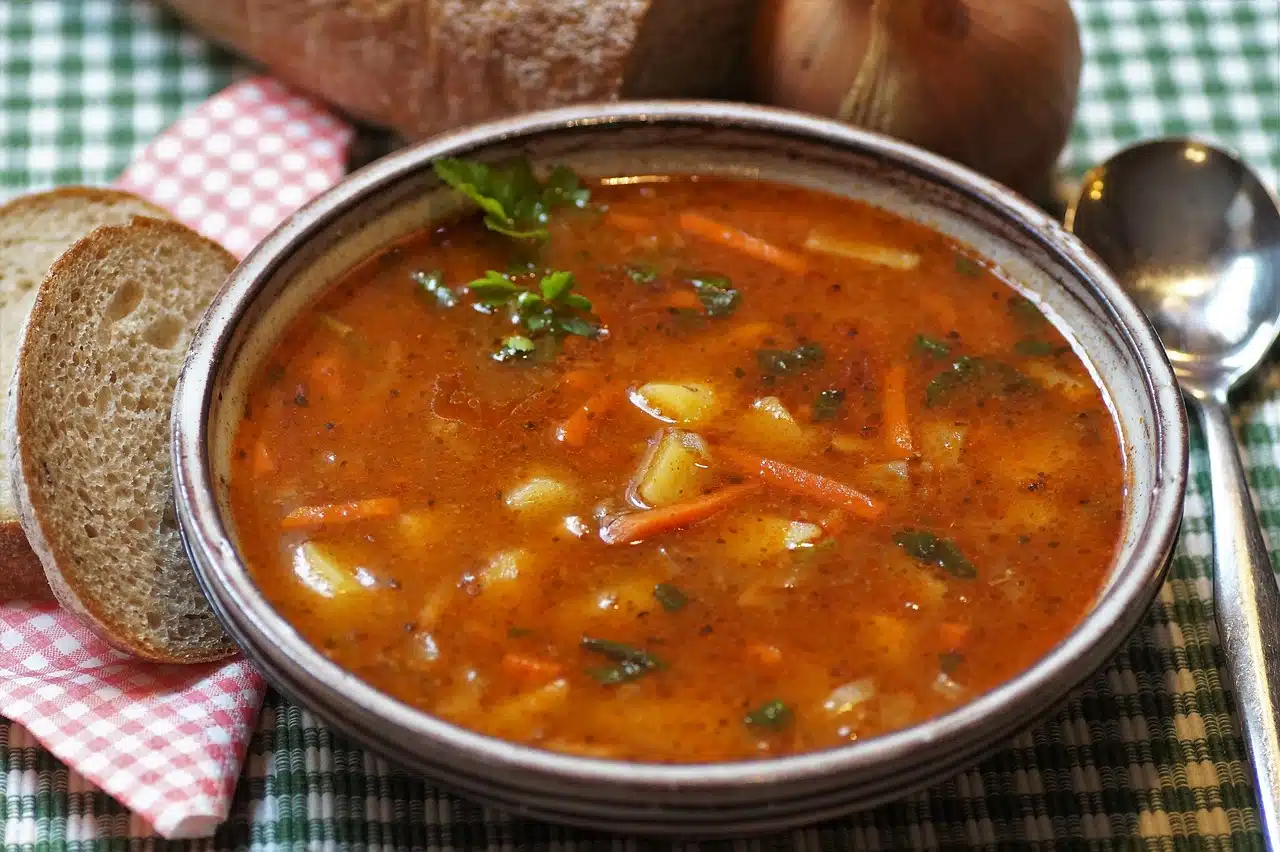
A soup is a meal that is usually broth-based.
A soup is a type of food that can be made according to various recipes . Generally, the preparation consists of a broth in which noodles, rice, vegetables or other foods are cooked, and which is served before the main meal.
Specifically, the concept of soup can be used with several similar meanings: the piece of bread soaked in a liquid, the dish composed of a food liquid and slices of bread, the pasta that is mixed with broth, etc.
Because it is a recipe that usually includes such basic elements as bread and broth, the food given to the poor in assistance homes is known as soup.
Types of soup
Instant soups are those industrial preparations with dehydrated content. By pouring its contents into water and boiling it for about ten minutes, you obtain a noodle soup, chicken with rice or other ingredients.
Onion soup is made up of a vegetable broth whose main component is onion . To prepare it, first cut the onions into julienne or brunoise and then fry them. In the next step, they are boiled in the broth.
Noodle soup , in general, are those whose main ingredient is noodles. Although they are very popular around the world, noodle soups are one of the typical dishes of Asian cuisine.
Another well-known soup is gazpacho , which is served cold and whose main component is tomato . It is a classic dish from Andalusia , where it is very hot in the summer season, which explains why it is eaten cold.

There are various types of soup.
The dish hated by Mafalda
As a curious fact, we can say that soup was the hated food of Mafalda , that friendly little character created by Quino and who has gone around the world with her free way of thinking and her open ideas about equality and peace in the world. .
One of his most popular phrases was: "Soup is to children what communism is to democracy!"
The SOPA law
The acronym SOPA corresponds to the English terms Stop Online Piracy Act , which would be something like Enough of online piracy! This is a Bill that emerged in 2011 in the United States, which has spread to various countries around the world and whose purpose was to control online piracy crimes and ensure intellectual property rights to their legitimate owners as much as possible. owners .
Those who offer illicit material through the network could be condemned to a constant blocking of their accounts and pages, and, in more serious cases, said blocking could be extended to Internet or hosting providers. In addition, their funds in PayPal accounts and other similar services would be frozen and all their Internet advertising, such as Google Adsense, would be blocked, and all their links would be removed from the web.
In any case, there is a dilemma surrounding the law , so much so that even though the project has been out for several years it has not yet been approved. And the approval of it would undoubtedly bring many collateral effects on the Internet , changing it forever, some think negatively, others affirm that everything would become safer, that the material circulating on the network would be of good quality and there would be less problem of scammers taking advantage of the space to take advantage of the innocence of certain people.
This law is closely linked to the SINDE Law , detractors of both believe that both were designed by the copyright lobby , which tries to apply ancient methods to modern eras and endangers freedom on the Internet .
